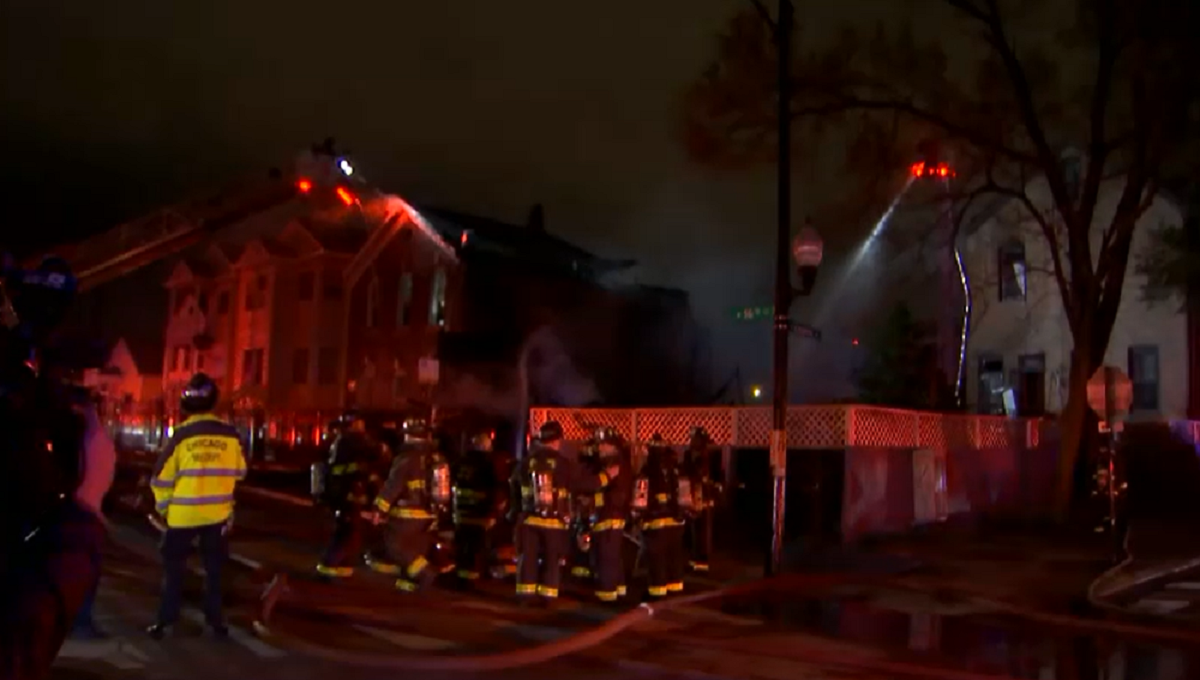With new highly-transmissible omicron subvariants taking over the Midwest and U.S., could you need a new coronavirus booster vaccine this fall?
According to Chicago Department of Public Health Commissioner Dr. Allison Arwady, you could.
An advisory panel from the U.S. Food and Drug Administration has recommended that booster shots be adjusted to better target the omicron COVID variant. However, Arwady noted the difficulties of this possible development.
“This has been complicated because those subvariants continue to emerge. Neither company has developed the vaccine specific to BA.4, BA.5 because that just emerged in the last couple weeks," Arwady said Tuesday. “There’s this question of when do you draw the line when it takes about three months for vaccines to be produced and distributed, but also wanting to make sure it’s the best match possible.”
Feeling out of the loop? We'll catch you up on the Chicago news you need to know. Sign up for the weekly Chicago Catch-Up newsletter here.
Arwady suggested such booster shots could be distributed sometime in October or November.
"Once we know what that guidance looks like - the FDA and CDC are weighing in - we would have the timing for a potential fall booster campaign," she said. "I'm guessing that fall booster campaign will come October, possibly November. It takes about three months to start producing, distributing etc. doses that have that updated composition."
On Tuesday, Arwady said that the prevalent omicron strains, BA.4 and BA.5, are quickly shifting, with the latest two notably more infectious.
Local
"The majority of the cases that we're seeing are either BA.4 or BA.5, and just as a reminder, BA.4, BA.5 are more contagious," Arwady said.
Aside from being even more contagious than previous variants, scientists are tracking a mutation in BA.4 and BA.5 that could help it evade some immunity and cause reinfections.
A genetic trait that harkens back to the pandemic's past, similar to what is known as the “delta mutation," appears to allow the subvariants "to escape pre-existing immunity from vaccination and prior infection, especially if you were infected in the omicron wave," said Dr. Wesley Long, a pathologist at Houston Methodist in Texas. That's because the original omicron strain that swept the world didn’t have the mutation.
This genetic change is bad news for people who caught the original omicron and thought that made them unlikely to get COVID again soon. Although most people don't know for sure which variant caused their illness, the original omicron caused a giant wave of cases late last year and early this year.
Long said lab data suggests a prior infection with the original omicron is not very protective against reinfection with the new mutants, though the true risk of being reinfected no matter the variant is unique to every person and situation.
With these two variants, Arwady noted that, in some cases, those previously infected with omicron "early on" have become reinfected with BA.4 and BA.5, including cases in Chicago.
"With BA.4, BA.5, we have started to see some examples, even of people who were infected with omicron early on, starting to occasionally get reinfected with BA.4 or 5," she said.
However, COVID vaccinations have continued to prevent severe hospitalization and death, Arwady said.
"There's so much transmission that's still going on that we are seeing the virus mutate and change very quickly," Arwady said.
Chicago's head doctor explained that the Midwest is ahead of the northeastern part of the U.S. in recording BA.4 and BA.5 cases. Nationwide, though, a combination of the two variants have become the majority strains.
In the Midwest as of June 25, BA.4 made up 16.9% of cases while BA.5% accounted for 39.4%. Nationwide, 15.7% of cases were BA.4 and 36.6% were BA.5, according to data from the Centers for Disease Control and Prevention.
As of the week before, the BA.2.12.1 lineage of omicron was still the dominant strain of COVID in the U.S., and was responsible for an estimated 56% of cases. At the time, BA.5 made up an estimated 23.5% of cases.
According to the New England Journal of Medicine, studies have shown that "the levels of neutralizing antibodies" that previous infection or vaccinations create in the body are less effective against the BA.4 and BA.5 subvariants, but still provide “substantial protection” against severe illness.
The research could indicate that BA.4 and BA.5 could cause increased infections among all populations, including those who have been vaccinated and boosted, but also indicates that those vaccinations will still help to guard against severe illness.
According to officials in Europe, the BA.4 and BA.5 subvariants will likely become the dominant strains of the virus in coming weeks, and those sublineages have already been the dominant strains in South Africa, researchers told CNN.



